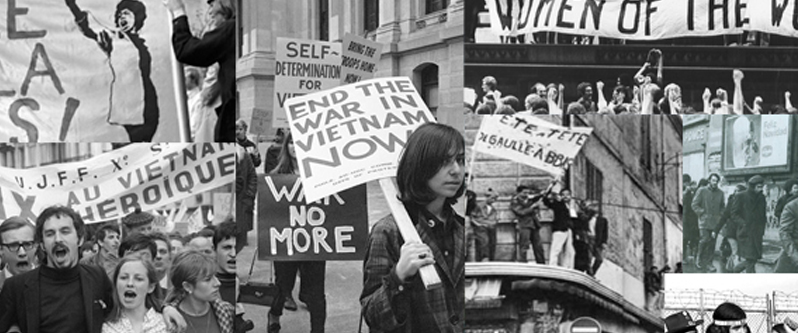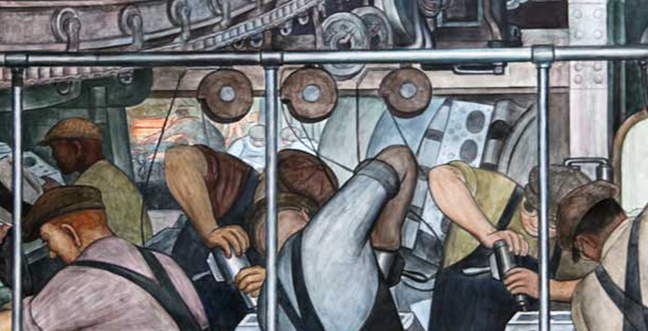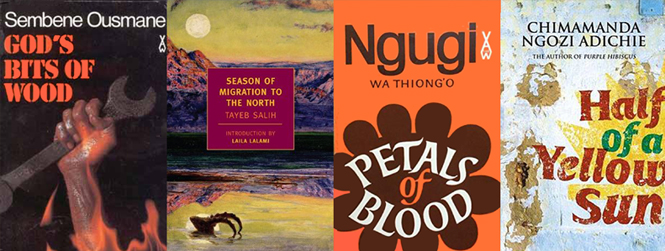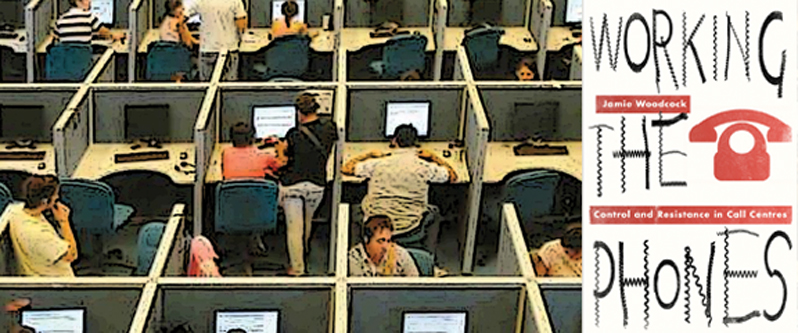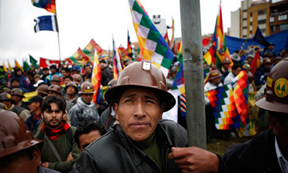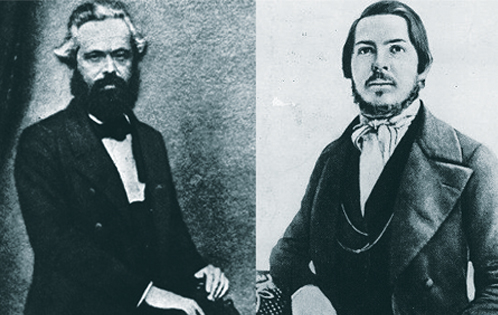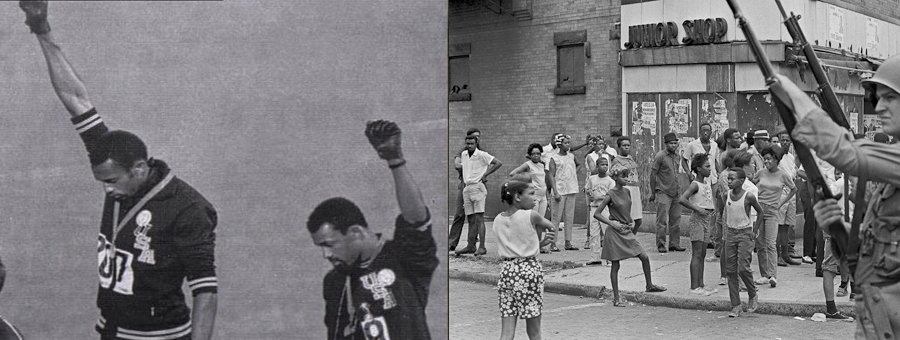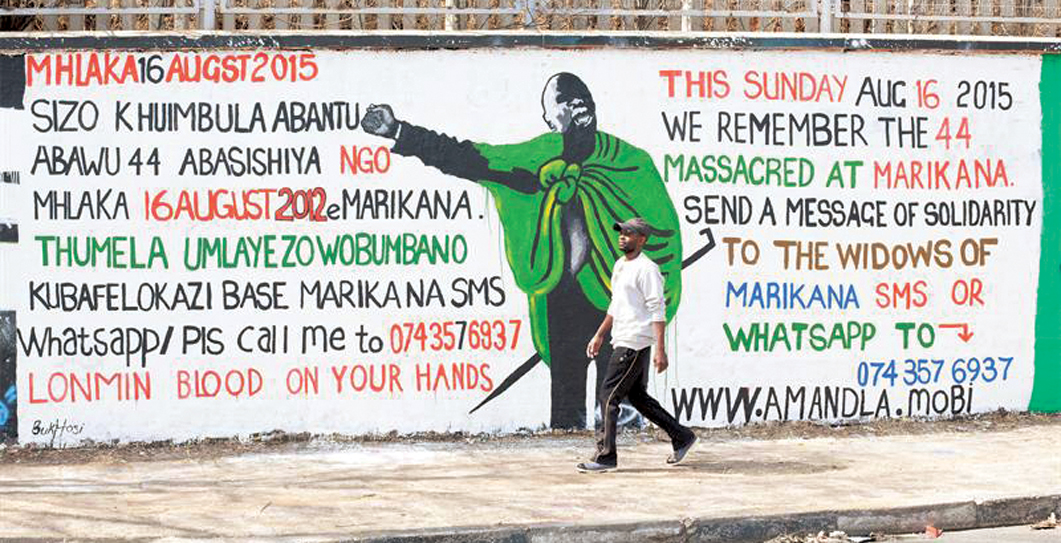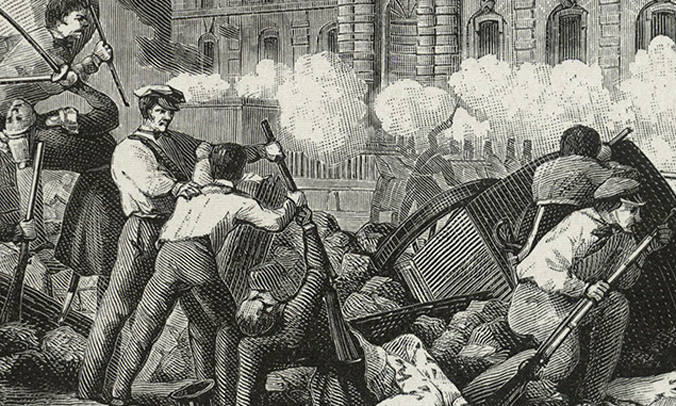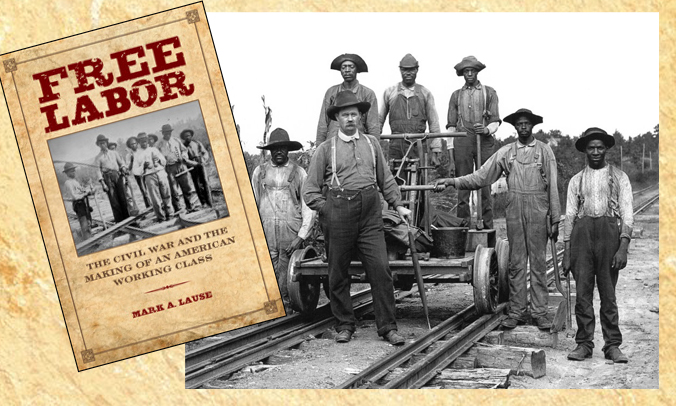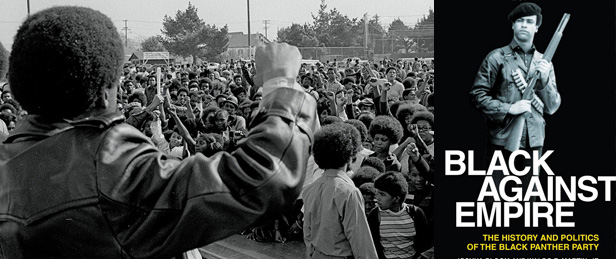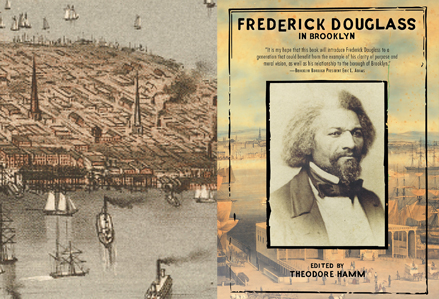The Emergence of a New Left
“The free election of masters does not abolish the masters or the slaves.” ― Herbert Marcuse
“Disaffiliation was deliberate, and conscious, even self-conscious, among the demonstrators who appreared in the fifties—unavoidably, disaffiliation is a prerequisite of protest.” —Jeffrey Nuttall, Bomb Culture
Highlights of Capital, Volume 1
CAPITAL is the indispensable sourcebook on Marx’s method for analyzing the economy, politics and struggles. Many of us have less time to study it because, as Marx predicted, we have to work longer hours— and often more than one job—in order to survive. Fortunately, even a basic familiarity with the key concepts of Volume I offers many tools for understanding capitalism’s dynamics.
African Literature: Colonialism, Liberation, Disillusionment
With the reading of novels by Ousmane Sembene (Senegal), Tayeb Salih (Sudan), Chimamanda Ngozi Adichie (Nigeria) and Ngugu wa Thiong’o (Kenya), we examine four different areas of Africa as the peoples there emerge from European colonization. We witness the struggles of workers on strike before their full independence, anti-colonial resistance spanning from Mount Kenya to academic circles in London. As nations become independent we discover new and recycled forms of oppression, exploitation and war. In the midst of disillusionment, we see resolve and signs of what remains possible.
Integrating Social and Natural Systems
...this course will focus on key concepts in Earth system science (water, air, soil, and life) and systems thinking. Gaining a perspective of how we exist in the natural world even in built environments influences the framing of questions and then how these questions might be answered in order to understand ways we can become sustainable and resilient societies.
Marx’s Grundrisse
Marx viewed all his economic laws as tendencies and it is hard to deny that those tendencies are becoming more and more the realities of today’s capitalism. However, to understand our society we need to do more than reading and accepting his concepts, we must critically analyze them and look for the way of thinking that produced them. It is with this goal in my mind that we should embark on a journey through the long and complex sentences of The German Ideology and the Grundrisse.
Working The Phones: Control and Resistance in Call Centers
Interference Archive 131 8th Street, No. 4, Brooklyn, NY, United StatesThe talk includes three parts: first, it makes an argument for the use of workers’ inquiry as a method to study contemporary work conditions, in this case involving an undercover activist ethnography; second, it draws on heterodox and critical Marxist theory to understand the transformation of work; third, it focuses on the challenges of resistance and organization in contemporary work through a concrete example.
Ecological Imperialism, Settler Colonialism & Indigenous Resistance
This study group will use materials from the #StandingRockSyllabus and other readings to deepen our understanding of ecological imperialism, settler colonialism, and indigenous resistance. We will also critically examine the varied approaches that Marxists have taken toward these questions.
Marx and Engels: 1841-1844
This course will focus on two early works by Marx and one by Marx and Engels. The works by Marx are his doctoral dissertation of 1841 on ancient Greek atomistic theory and his Critique of Hegel’s “Philosophy of Right” from 1843. The work by Marx and Engels is The Holy Family, or Critique of Critical Critique of 1844.
Emergence of a New Left: Civil Rights from Reform to Revolution
Brooklyn Commons 388 Atlantic Avenue, BrooklynIf we don't do something real soon, I think you'll have to agree that we're going to be forced either to use the ballot or the bullet. It's one or the other in 1964. It isn't that time is running out—time has run out! —Malcolm X, 1964
Popular Struggles in South Africa
Brooklyn Commons 388 Atlantic Avenue, BrooklynWhat began as a discussion about wage increases between two workers in the changing rooms at one mine became a rallying cry for economic freedom and basic dignity.
The Life and Thought of Louis-Auguste Blanqui
Brooklyn Commons 388 Atlantic Avenue, Brooklyn...during his lifetime, Blanqui was a towering figure of revolutionary courage and commitment as he organized nearly a half-dozen failed revolutionary conspiracies and spent half of his life in jail. He inspired revolutionary actions from the late 1820s until his death in 1881 and beyond.
The Emancipation of Labor
Brooklyn Commons 388 Atlantic Avenue, BrooklynNorthern workers “took up arms because they understood the importance of the conflict in shaping the future value of ‘free labor,’” and a “rolling strike of the slaves” in the South became “the great incontrovertible and irreversible fact of the war”.
Emergence of a New Left: The Black Panther Party (extended to April 11)
Brooklyn Commons 388 Atlantic Avenue, BrooklynFrom the time that college students Bobby Seale and Huey Newton armed themselves and announced that they were going to patrol the police and fight police brutality, a cultural match was lit that sparked a revolution.
The Three Worlds of Social Democracy
Brooklyn Commons 388 Atlantic Avenue, BrooklynThe Three Worlds of Social Democracy offers cutting-edge case studies to present a truly global exploration of the methods, meanings, and limits of social democracy. It also explores the potential for left alternatives to social democracy and the dangers of surging right-wing populism.
Frederick Douglass Walk in Brooklyn
Brooklyn Borough Hall StepsThis talk will cover the locations where Frederick Douglass organized and met with abolitionists before the Civil War and other areas of the downtown area of Brooklyn where Douglass made appearances. Note that the date has changed from March 18 to April 1.

